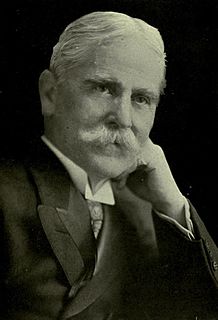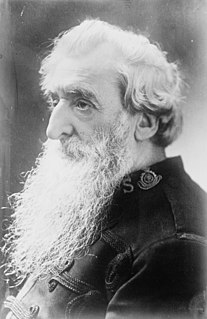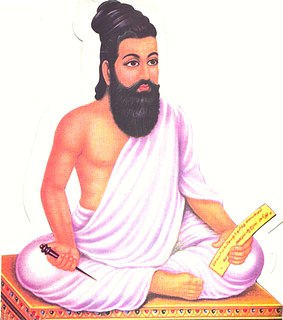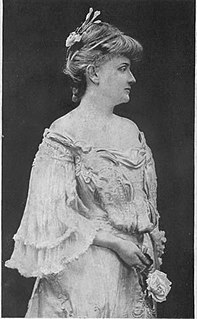A Quote by Mahatma Gandhi
A man's true wealth hereafter is the good he has done to his fellowmen.
Related Quotes
Every time man makes a new experiment he always learns more. He cannot learn less. He may learn that what he thought was true was not true. By the elimination of a false premise, his basic capital wealth which in his given lifetime is disembarrassed of further preoccupation with considerations of how to employ a worthless time-consuming hypothesis. Freeing his time for its more effective exploratory investment is to give man increased wealth.
It is true that so far as wealth gives time for ideal ends and exercise to ideal energies, wealth is better than poverty and ought to be chosen. But wealth does this in only a portion of the actual cases. Elsewhere the desire to gain wealth and the fear to lose it are our chief breeders of cowardice and propagators of corruption. There must be thousands of conjunctures in which a wealth-bound man must be a slave, whilst a man for whom poverty has no terrors becomes a freeman.
When a man sought knowledge, it would not be long before it could be seen in his humbleness, his sight, upon his tongue and his hands, in his prayer, in his speech and in his disinterest (zuhd) in worldly allurements. And a man would acquire a portion of knowledge and put it into practice, and it would be better for him than the world and all it contains - if he owned it he would give it in exchange for the hereafter.
Man is a Religious Animal. He is the only Religious Animal. He is the only animal that has the True Religion--several of them. He is the only animal that loves his neighbor as himself and cuts his throat if his theology isn't straight. He has made a graveyard of the globe in trying his honest best to smooth his brother's path to happiness and heaven....The higher animals have no religion. And we are told that they are going to be left out in the Hereafter. I wonder why? It seems questionable taste.
We were taught to believe that the Great Spirit sees and hears everything, and that he never forgets; that hereafter he will give every man a spirit-home according to his deserts: if he has been a good man, he will have a good home; if he has been a bad man, he will have a bad home. This I believe, and all my people believe the same.
No man could bring himself to reveal his true character, and, above all, his true limitations as a citizen and a Christian, his true meannesses, his true imbecilities, to his friends, or even to his wife. Honest autobiography is therefore a contradiction in terms: the moment a man considers himself, even in petto, he tries to gild and fresco himself. Thus a man's wife, however realistic her view of him, always flatters him in the end, for the worst she sees in him is appreciably better, by the time she sees it, than what is actually there.










































